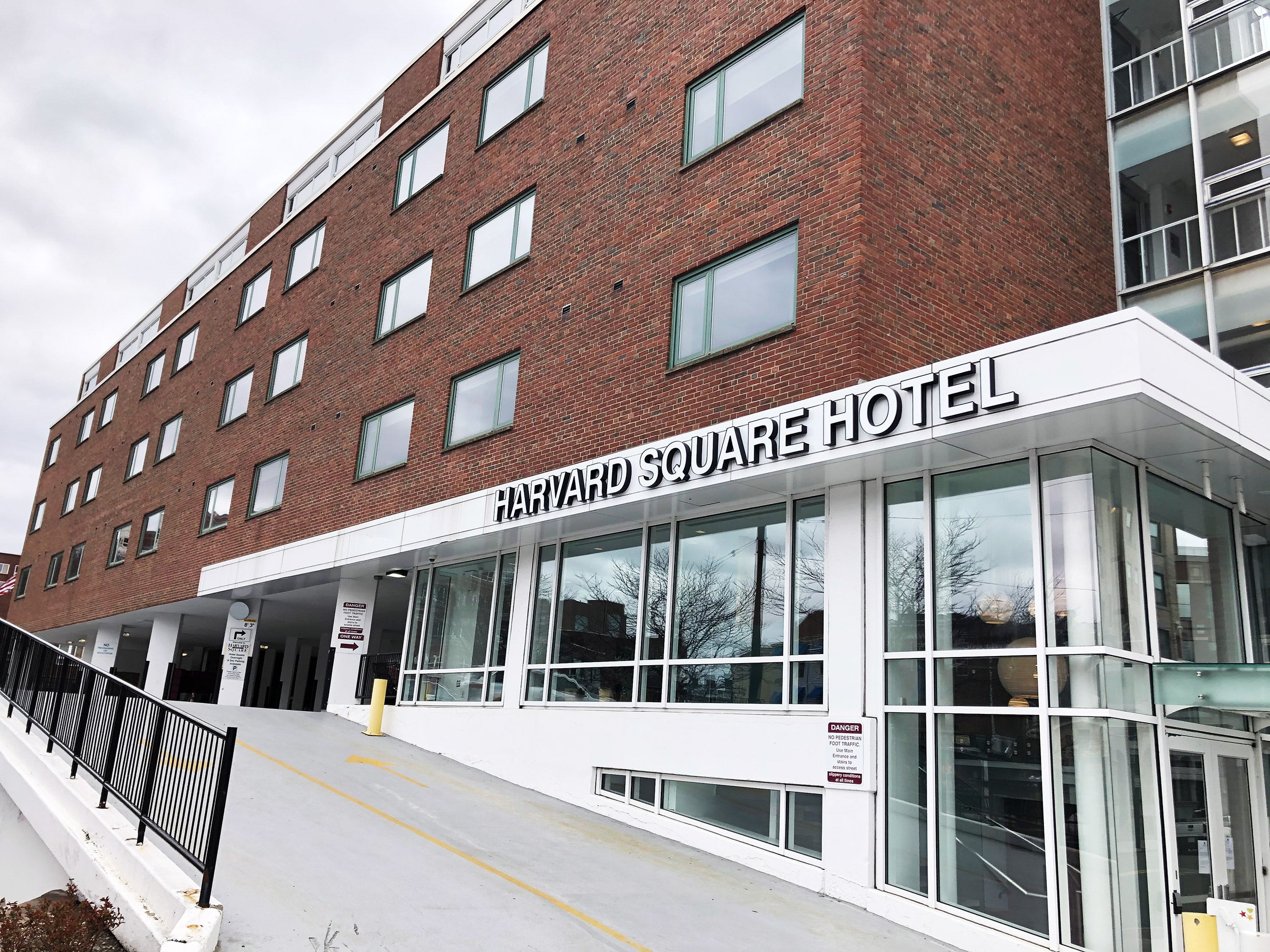
Harvard has made the Harvard Square Hotel available to the Cambridge Health Alliance and Cambridge Police, Fire and EMS for housing health care workers and first responders. Said Cambridge City Manager Louis DePasquale: “We very much appreciate Harvard’s support for the city’s efforts to confront this crisis. Having unfettered access to all the rooms at the Harvard Square Hotel will allow our health care workers and first responders a safe place to stay in close proximity to our emergency facilities. It alleviates stress for both our frontline workers and their families during a very anxious time for everyone involved.”
University community rallies to deal with COVID-19 crisis
Administrators, professors detail many and varied ways Harvard is trying to help, including offering use of hotel by Cambridge first-responders, health care workers
Harvard faculty, students, researchers, and staff are working alongside hospitals, first responders, state and city leaders, and many more across Greater Boston to support the response to the coronavirus pandemic. The Gazette recently spoke with some professors and administrators about the research, projects, and collaborations the University has undertaken amid the unprecedented global health crisis.
GAZETTE: Many people are aware of the front-line care being provided by Harvard teaching hospitals and the work on diagnostics, vaccines, and treatment options by University researchers, but there are also less-visible efforts being undertaken. Can you outline some of those?
KATIE LAPP, executive vice president: So many in our Schools and departments are working to identify ways in which we can collectively contribute. It’s human nature to want to help and speaks to many of the values we ascribe to as a community.
Like all of the planning and responses we have undertaken in the past month, we are identifying the various ways in which we can help and implementing solutions almost simultaneously. For example, we’ve offered the use of various lots and open space on our campus — particularly locations that are easily accessible — to help support health care operations. Some of these locations also have easy access to restrooms and office space that can be used for various needs.
The University has also offered the use of the Harvard Square Hotel to the Cambridge Health Alliance and Cambridge Police, Fire, and Emergency Medical Services for housing health care workers and first responders who will need places to stay in close proximity to hospitals and health care facilities. We hope this can alleviate some of the burden and anxiety that those on the front lines of this pandemic are currently facing.
GAZETTE: Massachusetts Gov. Charlie Baker and the state’s health care providers have made clear the urgent need for supplies. Harvard Schools, labs, and offices have already begun sending equipment and supplies to various locations, and there has also been a coordinated University-wide effort to support Massachusetts health care providers. The University collected thousands of pieces of Personal Protective Equipment (PPE), which will be provided to state agencies that are in the position to equitably distribute the supplies to hospitals and health care providers that need it most. How was that coordination done?
MARY CORRIGAN, associate director of laboratory programs for Harvard’s Environmental Health and Safety Department:Working closely with leadership at the Harvard John A. Paulson School of Engineering and Applied Sciences, Faculty of Arts and Sciences (FAS), and Harvard Medical School (HMS), Harvard’s Environmental Health and Safety team has taken the lead on inventorying, collecting, and most recently delivering four trucks full of PPE to be distributed to the hospitals and health care workers. It has been incredibly meaningful to work across the University in support of local health care providers and first responders, including our affiliated teaching hospitals. Our research activities put us in a unique position to support hospitals with personal protective equipment, and working with the Massachusetts Emergency Management Agency and Department of Public Health has allowed us to ensure a significant volume of supplies will be matched with the unique needs of health care institutions throughout the state.
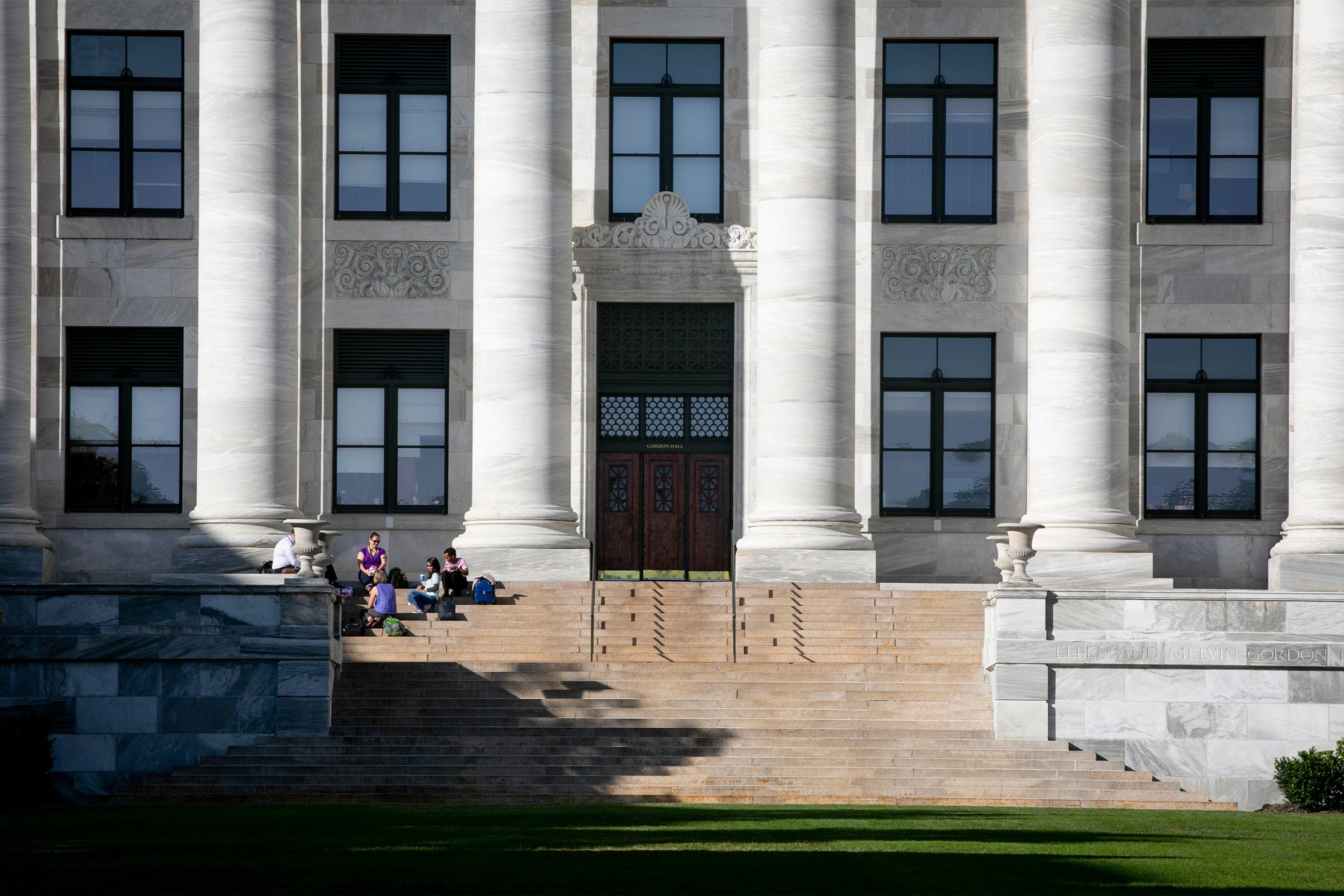
GAZETTE: In addition to donations of PPE and other critical items, how are faculty, staff, and students at HMS mobilizing to help?
GEORGE Q. DALEY, Harvard Medical School dean: Our medical students mobilized rapidly and formed volunteer response teams to provide critical support and resources to our physicians and nurses on the front lines, as well as to patients and the general public. We are exploring whether fourth-year medical students who meet the requirements will have the option to graduate early so that, if they choose, they can quickly be deployed into hospitals where regular staff may soon be overwhelmed with COVID-19 patients.
On the clinical-care front, we have convened faculty across our affiliated hospitals to share best practices on topics ranging from critical- and intensive-care management to diagnostic testing, emergency response, and disaster management. We have assembled ICU directors and bioethicists to formulate consensus principles for Crisis Standards of Care. Behind the scenes, our Harvard Health Publications team launched the Coronavirus Resource Center to provide reliable answers and information about the disease, and it has quickly become one of the most-clicked websites after the CDC and WHO.
We have launched two webinar series: “Clinical Management through COVID-19,” geared specifically for clinicians and other health care professionals, and “Coping with Coronavirus,” to help those feeling the emotional strain of this unprecedented crisis. While we have mothballed most of our research labs, we have approved emergency exemptions for the most immediate, high-priority COVID-19-related research that is likely to impact patient care within a year. Additionally, we have convened and are providing the administrative core for the Massachusetts Consortium on Pathogen Readiness (MassCPR) — including over 100 local clinicians and scientists working in six priority areas — to respond to the current COVID-19 pandemic and better position us to address potential future outbreaks. Though we are now working mostly apart, the HMS community is coming together in new ways that are both profound and productive. I could not be prouder of those who have put mission over self, and I know we will emerge stronger as a result.
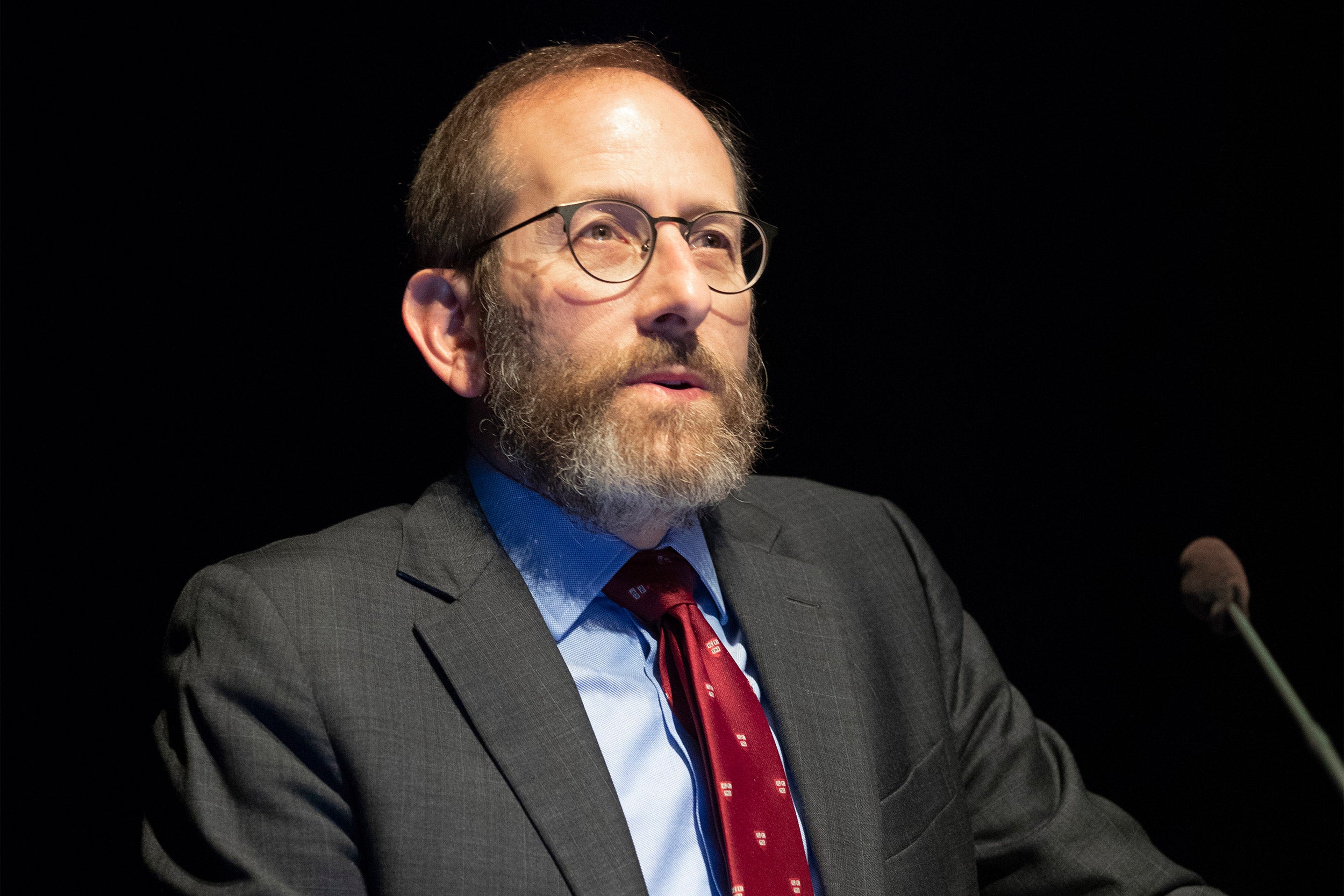
GAZETTE: Can you give us some specific examples of how faculty members are working to share their research and expertise?
ALAN GARBER, provost: Experts have deployed — virtually — across the country and around the world to provide essential research, information, advice, assistance, and public education on the coronavirus outbreak, including the public health implications and the public policy response.
Among our faculty are experts in infectious diseases, immunology/epidemiology, global leadership, crisis management, and health care policy. They have much to contribute to our understanding of the pandemic and the means to control it. We’re connecting them with local officials and community leaders.
Harvard Medical School, Harvard T.H. Chan School of Public Health, and the Broad Institute have each launched research initiatives focused on the coronavirus, including its cause, possible treatments, improved testing, and vaccine development.
Faculty and staff from across the University are rising to the challenge and sharing their skills and expertise to help us all fight this pandemic.
For example, the Wyss Institute for Biologically Inspired Engineering has nearly a dozen teams at work on coronavirus-related projects. Peng Yin, professor of systems biology at Harvard Medical School, and Wyss senior staff scientist Thomas Schaus are developing disposable, scalable tests for the virus in the form of lateral flow devices that can be used at home without any special training or equipment. George Church, professor of genetics at Harvard Medical School, and his lab are focused on leveraging the power of our own immune systems by engineering antibodies that bind to and attack the virus.
A team at the Harvard Chan School of Public Health, including Marc Lipsitch, professor of epidemiology and director of the Center for Communicable Disease Dynamics, conducted mathematical modeling of outcomes of social-distancing interventions. They concluded that intermittent waves, rather than a one-time effort of social distancing, are a more promising strategy to control the epidemic.
Robert Barro, Paul M. Warburg Professor of Economics, is studying lessons learned from the 1918 Spanish flu in order to better understand COVID-19’s potential effects on mortality and economic activity. His findings suggest that the coronavirus could trigger an economic decline similar to that of 2008–2009.
These are but a few examples of our researchers making vital contributions to our understanding of, and response to, the coronavirus. I’m incredibly grateful for the intellectual energy and dedication that the Harvard community is bringing to such urgent projects.
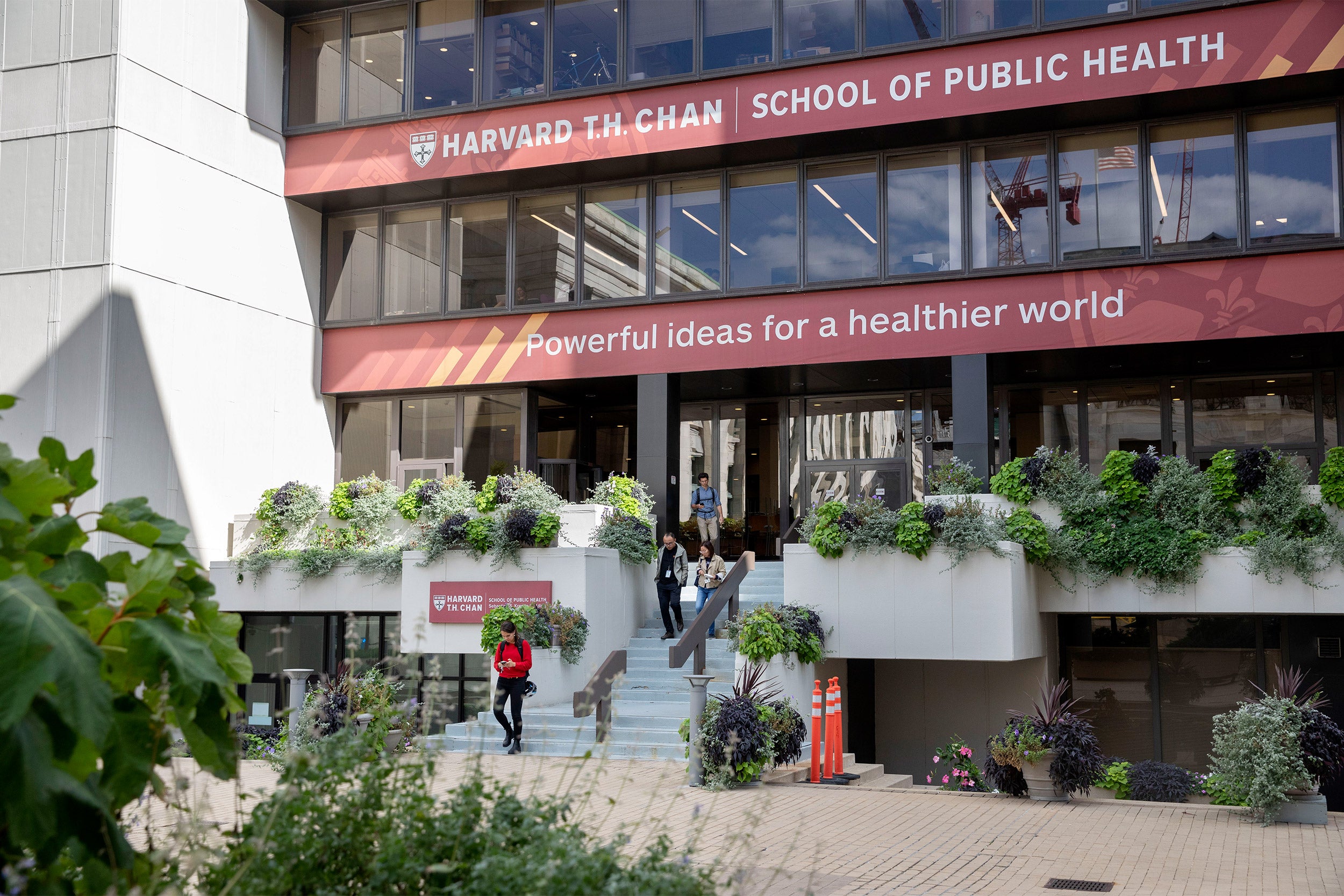
GAZETTE: We’ve seen faculty and epidemiologists from across the T.H. Chan School of Public Health lending their expertise and leadership in several areas, including equity discussions, to highlighting how location and mobility data collected through apps and smartphones can play an important role in measuring the impact of social distancing efforts. In what other ways is the Chan community responding?
MICHELLE WILLIAMS, Chan School dean: We’re joining forces with Thrive Global, a behavior-change technology company founded by Arianna Huffington, and the CAA Foundation, the philanthropic arm of entertainment and sports agency Creative Artists Agency (CAA), to create an initiative to provide first responder health care workers with physical and psychological resources as they serve on the front lines of the COVID-19 pandemic. #FirstRespondersFirst will provide support for this workforce, ranging from minimum-wage hourly workers in home-care settings to social workers, nurses, physicians, and beyond. The initiative provides essential supplies and equipment for protecting health care workers and their patients. Additionally, the collaborators provide evidence-based content via access to online workshops, virtual training, coaching, and content, all of which aim to help improve the physical and mental well-being of health care workers.
We also continue to place an emphasis on mental-health support during this crisis. The School’s Center for Work, Health, and Well-being has published a COVID-19 resource for employers and employees and will continue to update the resource as the pandemic evolves. In addition, we have launched a Wednesday mental health series, created by Professor Karestan Koenen, to offer strategies for managing stress when coping with the pandemic.
Finally, we’ve launched efforts to get our students and alumni involved with the COVID-19 response. Gov. Baker’s office requested the Massachusetts Department of Public Health (DPH) to work with local schools and programs of public health to assist local public health departments and staff in Massachusetts who are overwhelmed by the pandemic. Mobilizing students and alumni began on March 25 through a survey, and two days later more than 1,000 volunteers from the nine schools and programs making up the state’s Academic Health Department (AHD) Collaborative had registered to help address immediate needs in Massachusetts.
GAZETTE: Harvard’s decision to send students home for the rest of the semester and ask many employees to work remotely has affected many small businesses in and around Harvard Square and in Allston. Is the University doing anything to help these businesses?
MEREDITH WEENICK, vice president for campus services: We have reached out to all of our retail small business tenants and are working to address their individual concerns and needs. Depending on their individual circumstances, Harvard is offering different rent-relief options or minimum-sales guarantees.
The University also lifted lease requirements for mandatory minimum operating hours immediately upon announcing that students would transition to online learning. We have provided access to health and safety best practices and no-cost supplemental cleaning services. We are also working to connect business owners with the state resources that will be available via various local resiliency funds and loan programs and will offer the same technical assistance when and if the federal government offers stimulus or relief packages.
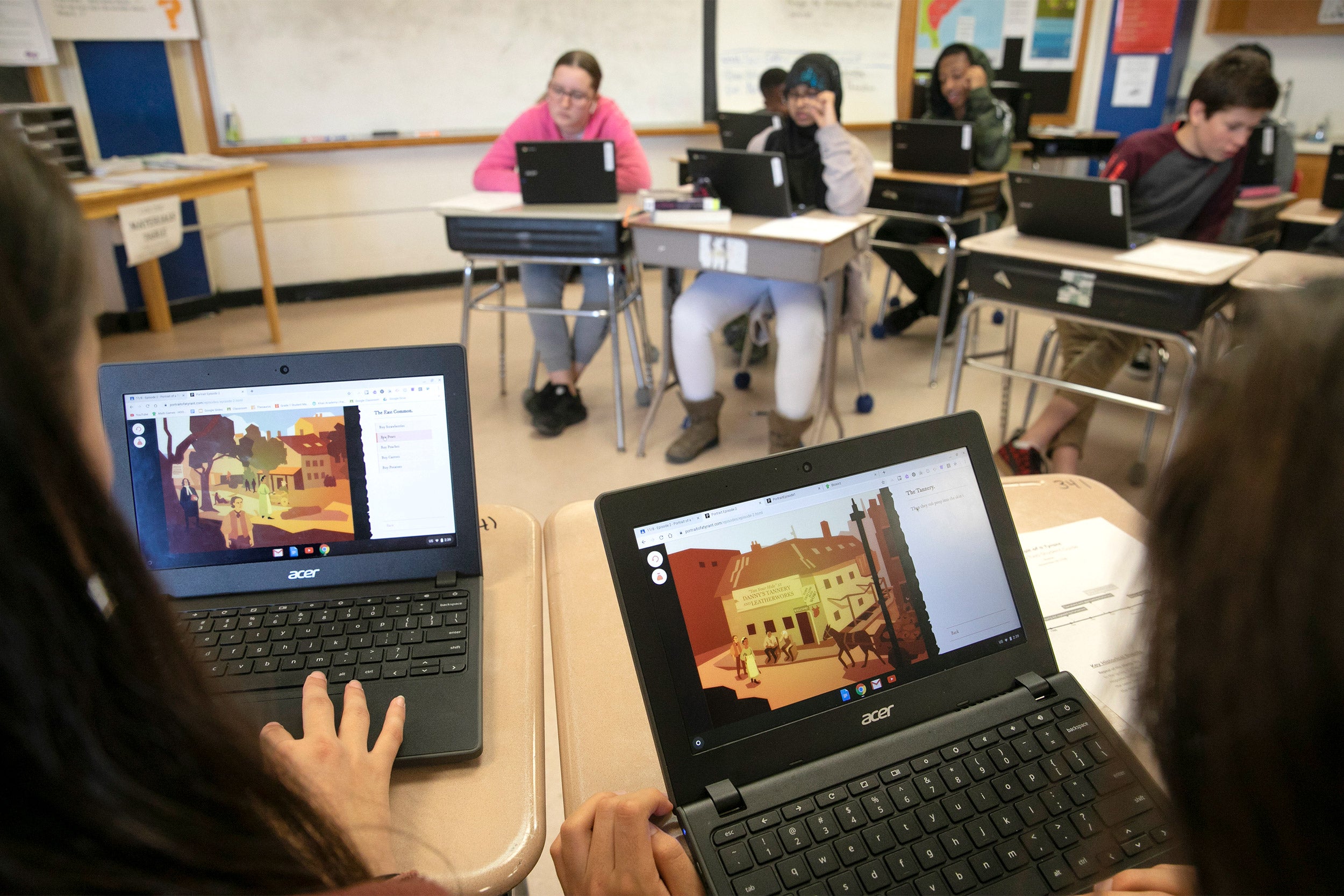
GAZETTE: Under normal circumstances, Harvard is deeply engaged with students and teachers in both the Cambridge Public Schools and Boston Public Schools. How has that work changed now that both of those school systems have canceled school for at least the next few weeks?
MAILE TAKAHASHI, director of community programming: Our team has been in contact with the school administrations in both Cambridge and Boston and is actively working to identify ways in which the University can help support both school systems, and what resources they may need as they plan curricula for the rest of the school year.
As students and teachers began shifting to online learning, Harvard is working to ensure families are connected to various online resources for teaching and learning, for academic content, and for social/emotional growth and health. At the start of remote school for example, Harvard printed approximately 20,000 copies of grade and curriculum-specific packets for distribution to local Boston Public Schools families. These packets included curriculum materials for students at every grade and subject level to take home.
And there are so many ways the University is supporting K–12 learning across campus.
The Harvard Graduate School of Education is sharing information with families and students, including strategies for caring for children whose schools are closed, and offering suggestions and resources for keeping kids motivated during the closures.
The newly launched LabXchange is a free resource for remote and hybrid learning from Harvard. It offers high-quality digital content in the sciences that you can remix into customized learning narratives, as well as social features that empower and connect learners, educators, and researchers worldwide.
And, as always, HarvardX is a great way to access free online classes on subjects ranging from calculus to cooking to classical music.
In the coming days and weeks Harvard will continue to transition more resources and programing online and assess the need for new programming to help our community get through these uncertain times.
GAZETTE: Is the same true of other public offerings from Harvard? Will that programming still be available?
TAKAHASHI: Absolutely. Over the past few weeks departments and Schools across the University that routinely offer programs to the public have begun to transition those offerings to online formats so that everyone can enjoy them virtually.
The Harvard Art Museums has made a virtual tour of some of the current works on display. Similarly, the Harvard Museums of Science and Culture are urging virtual visitors the explore and utilize online resources, including free lecture videos and several online exhibitions.
Harvard is also working to showcase opportunities around public arts programming across the University, such as online arts talks and performances. The Office for the Arts at Harvard is offering a daily moment to “Pause for Art: Creative Moments for Art” on its website. It’s a daily dose of artistic inspiration for anyone looking to find a moment of beauty, comfort, and connection. The Silkroad collective has created a virtual concert miniseries in response to the COVID-19 pandemic.
At the Harvard Ed Portal, we’ve transitioned many of the programs to online. In the first week of Gov. Baker’s stay-at-home advisory, we’ve been able to offer nearly 12 workshops online as part of our workforce programming — which is now a critical bridge for the unemployed as they face isolation and a vastly different employment landscape. Beginning on April 1 we’re offering weekly yoga classes, which anyone can join.
As Harvard undergrads settle into their own online learning experiences this week, we’ve heard from many of our undergraduates and graduate students who serve as mentors to local Allston-Brighton youth at the Ed Portal that they will continue their mentoring, academic clubs, and other youth programming online. And we’re currently working to connect our local small-business partners with guidance and resources and workshops. We will continue to develop programming as we hear more from our community.
As more of these programs and offerings continue to move online, we urge everyone to stay connected to the Ed Portal via the weekly newsletter, and to check back on our website often to keep up with — and access — the latest programs. There’s no shortage of offerings across the University, and we really hope people check in with their favorite museums, Schools, or departments and take advantage of one — or more — of these opportunities.
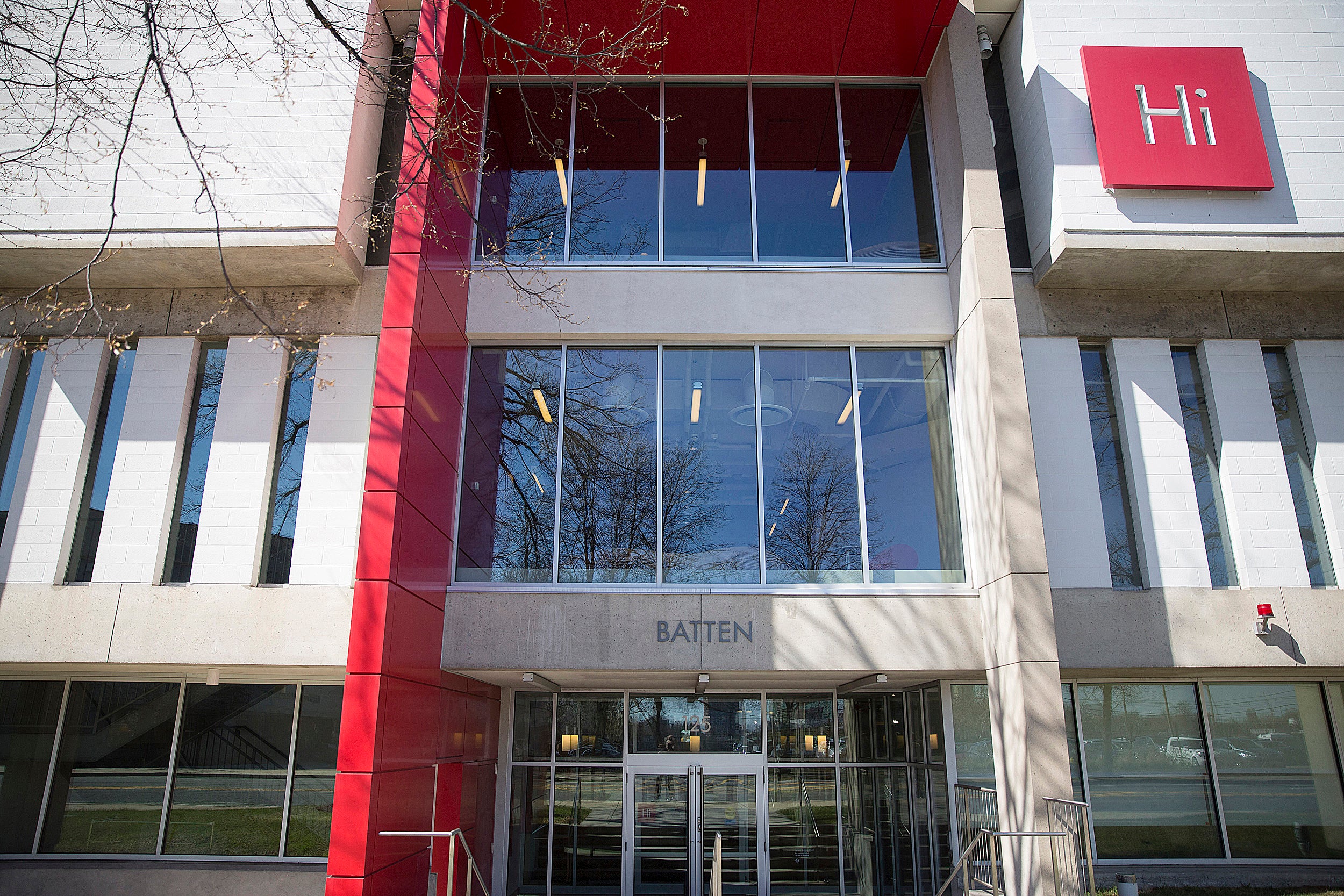
GAZETTE: What type of work is coming out of the Harvard Innovation Lab, and how can it potentially help those on the front lines?
MATT SEGNERI, Bruce and Bridgitt Evans Executive Director at the Harvard Innovation Labs: Many startups in the Harvard Innovation Labs are creating products and services that have the potential to reduce the spread of the virus, improve patient care, and create community when in-person gatherings are not possible. We’ve also recently seen numerous examples of former ventures refocusing their efforts on inspiring initiatives related to the COVID-19 pandemic.
For example, in partnership with the commonwealth of Massachusetts, Buoy Health launched a free symptom checker for COVID-19, which is designed to help people understand whether they should seek care for the virus. The company has also begun socializing its epidemiological data around coronavirus symptom trends, including those that appeared prior to public COVID-19 case confirmation by state authorities. Nurse-1-1 launched a service that lets anyone in the U.S. text with a nurse for free. And Umbulizer is commencing manufacturing of its low-cost portable ventilator, helping to address ventilator shortages as well as the high cost associated with typical ventilators. They have recently raised funding from the Allston Venture Fund and are currently looking to close on additional funding to expand manufacturing, distribution, and service capabilities. Learn more about the company’s clinical trial at ClinicalTrials.gov.
More examples can be found at the Innovation Labs website.




